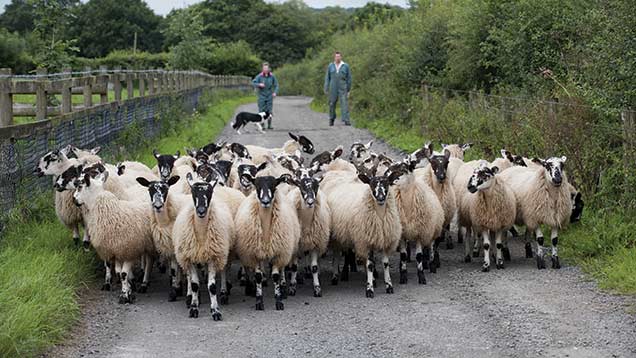Budget brings big wage bill rise for farm employers
 ©FLPA/Rex Shutterstock
©FLPA/Rex Shutterstock A compulsory national living wage rate of £7.20/hour to be introduced next April will hit farming businesses hard.
The launch of the living wage, replacing the national minimum wage, was a surprise at the end of chancellor George Osborne’s Budget speech.
The rate is a jump of almost 11% from the current £6.50/hour and is set rise to a £9/hour minimum by 2020 for employees aged 25 and older.
See also: Farmer focus: Staffing issues put pressure on business
Reductions in corporation tax would offset the rise, said the chancellor, but less than 10% of farming businesses use a company structure.
“As a result of this budget farmers and other rural businesses are presented with significant inflation in wage costs and the cut in corporation tax that is supposed to pay for it will not benefit them,” said CLA President Henry Robinson.
Budget key facts
- New national living wage rate of £7.20/hour from April to replace national minimum wage
- Annual investment allowance falls to £200,000 from January
- Corporation tax cut for all to 19% in 2017, 18% by 2020
- Employment allowance on national insurance rises to £3,000 from next year – exempting employers for the first £3,000 of NI
- More generous IHT relief for those passing family home to children or grandchildren – new £175,000 allowance on top of current nil-rate band
- Personal tax allowance rises to £11,000 next year, higher rate threshold to £43,000
- Fuel duty frozen for this year
The chancellor also announced a move to a permanent annual investment allowance (AIA) of £200,000 from next year.
Although lower than the current £500,000, this is far higher than the £25,000 to which it was scheduled to fall.
“Although the drop in AIA is disappointing, having something that is fixed is much better than it fluctuating,” said Stephen Rudd of accountant Larking Gowen.
The widely trailed increase in inheritance tax relief for families through the creation of a £175,000 family home allowance for each individual was welcomed.
Many farming properties qualify for agricultural property relief from IHT but claims are closely scrutinised by HMRC and this new allowance will help some farming families.
“The allowance will be transferable between spouses and there will also be an ability for those who downsize to still take advantage of the new family home allowance,” said Carlton Collister of Landtax.
Further restrictions on income tax reliefs on loan interest paid in rental businesses would also have repercussions for many farming businesses, where borrowings have been restructured to set against residential rental income, away from the farming business where were profits more variable, he said.
Personal income tax rates were unchanged in the budget but the tax-free allowance rises to £11,000 next year, alongside an increase in the threshold at which the 40p rate kicks in, to £43,000.
At Cumbria accountant Dodd & Co, Andrew Sims said that the squeeze on the welfare state was a concern for many farming families.
“In bad years particularly as a result of trade prices or weather, a large number of farming families will survive off working and family tax credits.”
